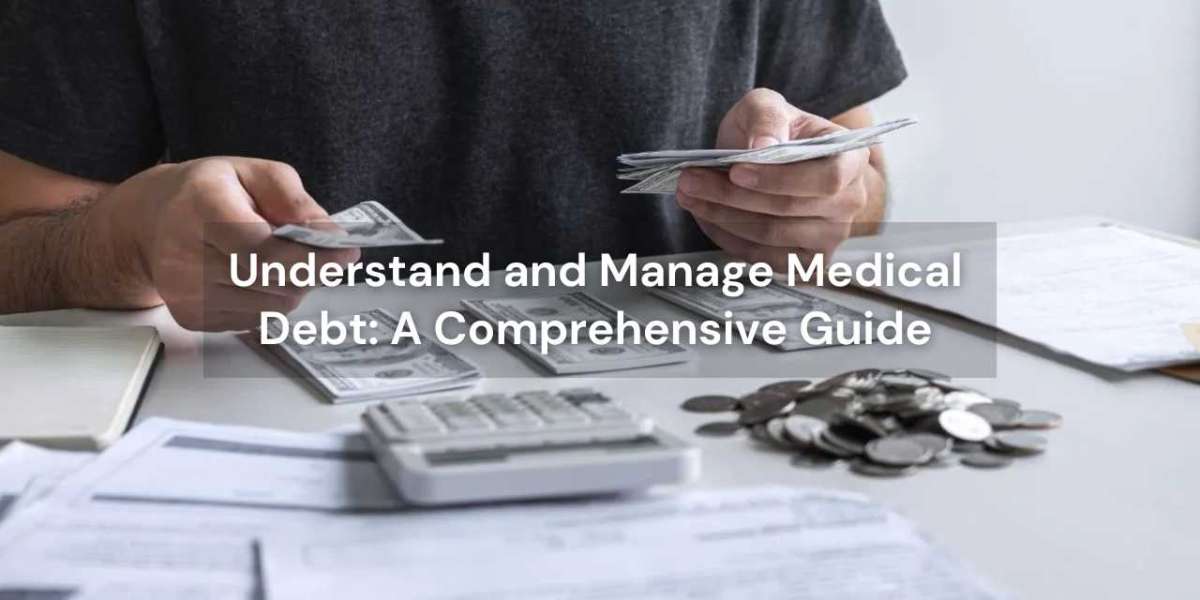Medical debt has risen sharply in recent years. More people face trouble paying medical bills. Even insured people get big bills they cannot afford. Healthcare costs keep rising faster than incomes. Insurance covers less over time. Deductibles and copays are higher now. All this leads to more medical debt.
Healthcare costs keep rising faster than incomes. Insurance covers less over time. Deductibles and copays are higher now. All this leads to more medical debt. Medical debt stresses personal finances. It makes life much harder for families. Many cut spending on food, utilities, and mortgages to pay medical bills.
Causes of Medical Debt
Mainly, it comes down to high medical fees and insurance not covering enough. Hospital stays now cost in the thousands per day. Meanwhile, insurance plans require people to pay more out-of-pocket before full coverage is paid. It adds up faster than families can keep up with.
Added Healthcare Fees
- Prescriptions and travel for appointments cost money
- Equipment and home assistance are only partly paid
- Social care requires income-based contributions
Beyond sky-high costs and insurance holes, bad luck plays a role, too - unexpected health crises that catch people completely off guard. Maybe you rarely get sick and feel fine, and then, out of nowhere, you get diagnosed with cancer or complications from an accident that requires surgery, hospitalisation, therapy, and medications. Even good insurance leaves folks on the hook for thousands they just don't have socked away.
Understanding Medical Bills
You can check it closely to understand what care you received and what you still need to pay for.
Spot Overcharges
It's common to find incorrect charges on medical bills that are higher than they should be. So watch out for multiple charges for a single test or treatment, prices that don't match more basic services given, and maths errors. Make sure you received all services billed.
Translate the Terminology
Ask your healthcare providers to explain diagnoses, drugs prescribed, procedures performed, and codes found on your bills in simple non-medical terms you grasp fully. You can compare listed dates and services with your personal records to clear up discrepancies.
Negotiating Medical Bills
When those medical bills come, there is no need to panic. Just pick up the phone and call the hospital or doctor's office. You can explain your money situation straight up. Say, look, I want to pay but need some help here. They often can knock it down quite a bit if you speak up. It doesn't hurt to ask politely and respectfully if they can lower it.
While you get them online, ask if you can set up payments that work for me. Tell them what you honestly can afford per month. Go back and forth a bit if they come back too high. But be ready for your situation and don't lose your cool.
Always ask for one of the itemised bills. The regular ones don't tell you idly. Make them break down everything charge by charge.
Medical Debt Relief Programs
Hospitals in the UK may have charity care programs. These help pay medical bills for people with low incomes. Ask the hospital if they offer this help. Fill out the application form to see if you qualify.
Government Aid
Some government groups assist with medical costs. For example, the NHS provides universal healthcare. Social services help cover prescription, dental, eye care, and travel costs for people receiving government benefits.
Non-Profit Organisations
Various non-profits also help people struggling with medical debts. Groups like Turn2us and StepChange offer advice and grants. Macmillan Cancer Support helps with cancer treatment costs.
Debt Forgiveness
You can ask healthcare providers to reduce or forgive medical debts in cases of financial hardship. Explain your situation fully and politely request their charity care help. Debt forgiveness depends on each provider's policies.
Debt Consolidation Options
Medical credit cards help pay health bills. You put medical care costs onto the card. Positives are easy to use and low interest. Negatives are high fees and interest rates later. They require good credit to qualify. Consider both benefits and risks.
Medical credit cards cover health expenses not paid by insurance. They have flexible spending limits and payment plans. But they charge costly set-up and late fees. Interest rates can spike significantly, too. Weigh if short-term help is worth long-term finance charges.
Medical Debt and Credit Reports
Medical debt shows up on credit reports when sent to collections. Unpaid medical bills get reported as in collections after non-payment over months. This debt then is part of your credit history.
Collection items hurt scores calculated from credit history data. Medical bills owed lower scores, just as credit cards or loans when overdue. Multiple unpaid medical debts demonstrate a financial risk to potential creditors reviewing reports.
How Unpaid Bills Lower Scores?
Missed or late medical payments suggest increased credit risk like other debt. This financial uncertainty from unpaid medical bills causes scoring models to reduce numbers.
More medical collections and higher unpublished amounts equal bigger score drops. Credit damage worsens over long delinquencies.
Timeframe for Debt on Reports
Medical debts only appear on credit reports once seriously past due and assigned collections status. This often takes 180+ days of non-payment after initial billing by providers.
Unpaid medical debts stay on report for up to 7 years, depending on state laws. Paying collections helps raise scores again over time. Disputes sometimes remove errors. Seeking debt forgiveness is an option, too.
How to Pay in Poor Credit Situations?
Those with poor scores struggle to get approved for affordable new financing. Interest rates are much higher for subprime lenders who are willing to accept the risk. Poor rates make paying off balances challenging. Vicious cycles happen, falling further behind on costly debt. Poor credit excludes many payment plans.
How Bad Credit Loans Help?
Bad credit lenders offer specialised loan products to higher-risk applicants with poor credit profiles. You can get very bad credit loans with no guarantor from a direct lender. Online lenders provide quick access with minimal documentation. Charges are steep due to associated default risks.
Bad credit instalment loans build a positive payment history when handled responsibly. Making on-time monthly payments helps boost credit over the 12-24 month terms. Payday advances give fast emergency money but very short repayment periods. Ensure you can repay amounts borrowed plus extremely high APR interest.
Preventative Measures
Taking preventative steps can help avoid massive medical debt. Having insurance, savings, and bill review habits makes costs more manageable.
Building an Emergency Fund
- Save money for unexpected medical costs not covered by insurance
- Set monthly automatic transfers; aim for 3-6 months of living expenses
- Keep funds easily accessible for health emergencies leading to treatment bills, or you can get bad credit loans
Regularly Reviewing Medical Bills
- Carefully read every medical bill and notice from providers
- Check for errors in dates, charges, services, duplicate items
- Dispute unclear or incorrect expenses in writing right away
- Negotiate payment plans and reductions for very large bills
Conclusion
Paying medical bills avoids extra interest and fees. Work with providers on payment plans. See if they offer financial assistance. Unpaid medical debt can hurt credit scores. Debt collectors may put liens on assets. Good financial hygiene prevents these issues.
Many nonprofit groups assist with medical debt. Public programs can cover more healthcare costs for those eligible. Learn about available resources by searching online or joining communities.







